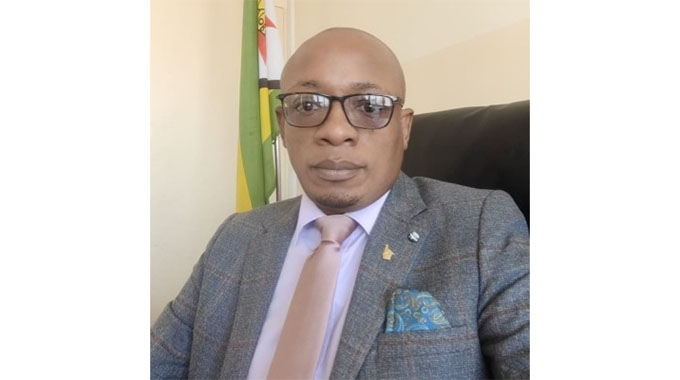16 Days of Activism against GBV launched

Rumbidzayi Zinyuke Senior Reporter
Effective strategies must be used to prevent gender-based violence with Government committed to working with development partners and other stakeholders to come up with the needed investment strategies.
With one in every three women experiencing physical or sexual violence at one point in their lives, GBV remains one of the most prevalent forms of human rights violations globally.
Speaking at the official launch of the campaign for 16 Days of Activism Against GBV yesterday, Minister of Women Affairs, Community, Small and Medium Enterprises Development Monica Mutsvangwa said investing in GBV prevention was an investment in the well-being and empowerment of individuals and communities.
“It enables the implementation of comprehensive strategies encompassing prevention, survivor support, education, advocacy, and policy reform. In addition, it sends a resounding message of society’s commitment to upholding the rights and dignity of all individuals as well as signifying a collective acknowledgement that violence has no place in our communities, and everyone deserves a safe and valued environment,” she said.
The launch of the campaign preceded the commemorations of the 16 Days of activism which are marked between November 25 to December 10 every year.
This year, the campaign will run under the theme “Unite! Investing to prevent violence against women and girls.” The central campaign commemoration will be held in Mutasa District on November 26.
Minister Mutsvangwa said integrating a gender perspective into the budget process could ensure that funds were used efficiently and effectively to promote equitable outcomes for all members of society, which contributed towards the prevention of GBV.
“Gender responsive budgeting operates on the fundamental principle that gender equality is not just a matter of social justice but also a catalyst for economic growth and sustainable development,” she added.
She called for the inclusion of men and boys in addressing GBV seeing that it was being perpetrated by both men and women.
Government has been working with various organisations and Governments of countries such as Canada, Sweden, the European Union, among others, to implement programmes aimed at addressing the scourge of GBV.
These include the establishment of One-Stop centres in Rusape, Gweru, Gwanda, Bindura, Chinhoyi and Bulawayo to provide comprehensive GBV services under one roof.
Safe shelters have also been set up while GBV surviviors have benefitted from economic empowerment programmes.
“It is crucial that as we commemorate the 16 Days of Activism against Gender Based Violence, we take stock, reflect and devise strategies on how we can further address the problem of gender based violence with the hope to end it in all its forms,” said Minister Mutsvangwa.
Speaking at the same event, the Ambassador of Canada to Zimbabwe Mr Adler Aristidle said Zimbabwe already had a strong foundation to build on future programmes that would accelerate action towards eliminating all forms of violence against women and girls by 2030.
“Eliminating sexual and gender-based violence in all its forms is a priority for Canada’s international assistance. We are advancing this comprehensively, through multi-sectoral programming and we have integrated it across our international assistance programmes in areas such as health, education and inclusive governance,” he said.
He expressed his country’s commitment to working with the country and international partners to contribute towards building a safer and more equitable Zimbabwe for women and girls.
Deputy head of the Embassy of Sweden Mr Berthollet Kaboru called for the fostering of partnerships between Governments, civil societies, and communities to accelerate progress in ending discrimination against women and girls.
“We must change the story, challenge misogyny and violence, and make sure women are heard. Women and girls everywhere should be able to access the help they need, when they need it, so we can end violence once and for all. In order to end violence against women and girls, a multi-stakeholder approach is required, with each of us playing our part and contributing to this ambitious but transformative result,” he said.
Ending GBV was a critical component of Sweden’s support to Zimbabwe, with a focus on increased protection and support to victims of violence, greater emphasis on preventive work, higher standards and greater efficiency in the judicial system, increased cooperation and coordination among stakeholders.
World Food Programme country director Ms Francesca Erdelmann, who was standing in for United Nations resident coordinator Mr Edward Kallon, said weak enforcement and discriminatory social norms continued to present challenges in the fight against GBV.
“The consequences of violence on women’s physical and mental health, economic empowerment, well-being, and professional development cannot be underestimated. It also hampers overall social and economic progress for families, communities, and societies, obstructing the achievement of sustainable development,” she said.
She called upon all stakeholders to strengthen protection mechanisms to prevent and eliminate violence against women in all its forms during elections, in public spaces, in the home, and online.
“We urge the Government to translate the high-level political compact signed and launched by His Excellency the President through allocation of resources from the national budget and integrate prevention efforts across sectors. We call to our bilateral/multilateral partners to increase funding in their official development assistance that support strengthening national laws, policies, and resources including resourcing autonomous women’s rights organisations.
“This can be achieved through commitments to the generation equality action coalition on gender-based violence and effective implementation of the ILO Convention No. 190. Additionally, creating safer workplaces and integrating violence prevention into broader policies and programs is essential,” said Ms Erdelmann.









Comments